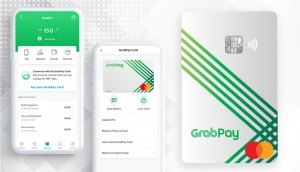Grab is focusing more on digital banking because neither ride hailing nor food delivery can justify its valuation of US$14.3 billion. Ride hailing isn't what it used to be - especially during a pandemic with no end in sight - and there is a lot of competition in food delivery, a cash-burning business if there ever was one. Remember that Uber, with exactly the same two businesses, has underwhelmed investors since its disappointing IPO last year. Perhaps selling rides and food deliveries below cost to build scale may not be an ideal business model after all.
In Grab and its deep-pocketed backers' view, however, the company can avoid Uber's conundrum: It need only monetize its users by turning them into digital banking customers. The first step was payments, which has largely been a success. GrabPay has become one of the most prominent e-wallets in Southeast Asia. Gradually, Grab has added other digital financial services, like micro-investments, while hoping the Monetary Authority of Singapore (MAS) approves its digital bank license application.
With or without the license, Grab will continue its foray into financial services. Prudential and AIA Group are among the firms that may soon invest in Grab's financial services unit as part of a US$300 million to US$500 million fundraising round. According to Reuters, Grab Financial Group's current valuation is US$2 billion.
Teaming up with large incumbents may be the only way that Grab can build a credible digital banking ecosystem. Without being able to tap their expertise and customer networks, the company may struggle. For instance, let's say Grab wins a Singapore digital bank license. How many Singaporeans, who live in Asia's best banked country, are going to use Grab as their main bank account? Neobanks love to highlight customer numbers, but they are irrelevant if customers deposit their money elsewhere.
Meanwhile, if the long-rumored merger with its archrival Gojek comes to fruition, Grab will have a much stronger pathway into Indonesia, Southeast Asia's largest economy, and a burgeoning digital banking market where 180 million people are still unbanked. The deal has reportedly gained traction in recent months as the pandemic has battered Grab and Gojek's core ride-hailing businesses. A merger would significantly boost both firms' paths to profitability.
Obstacles to the merger remain though, for the time being. Senior Grab executives "fear they will not come out on top against long-term shareholders looking to exit their loss-making positions in the group," according to Financial Times.

